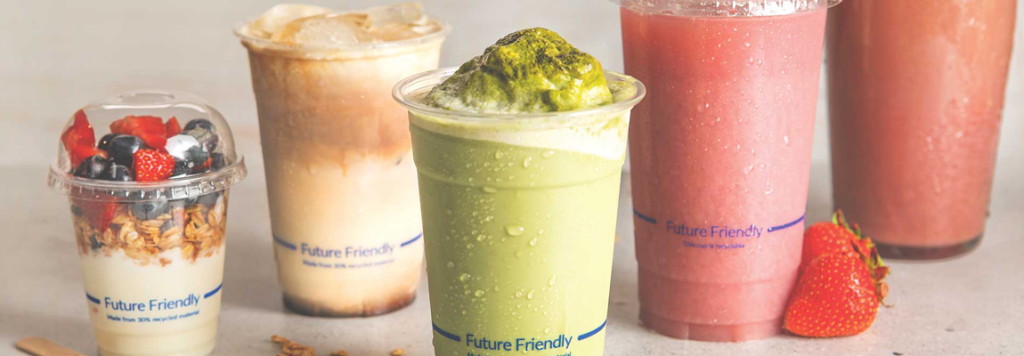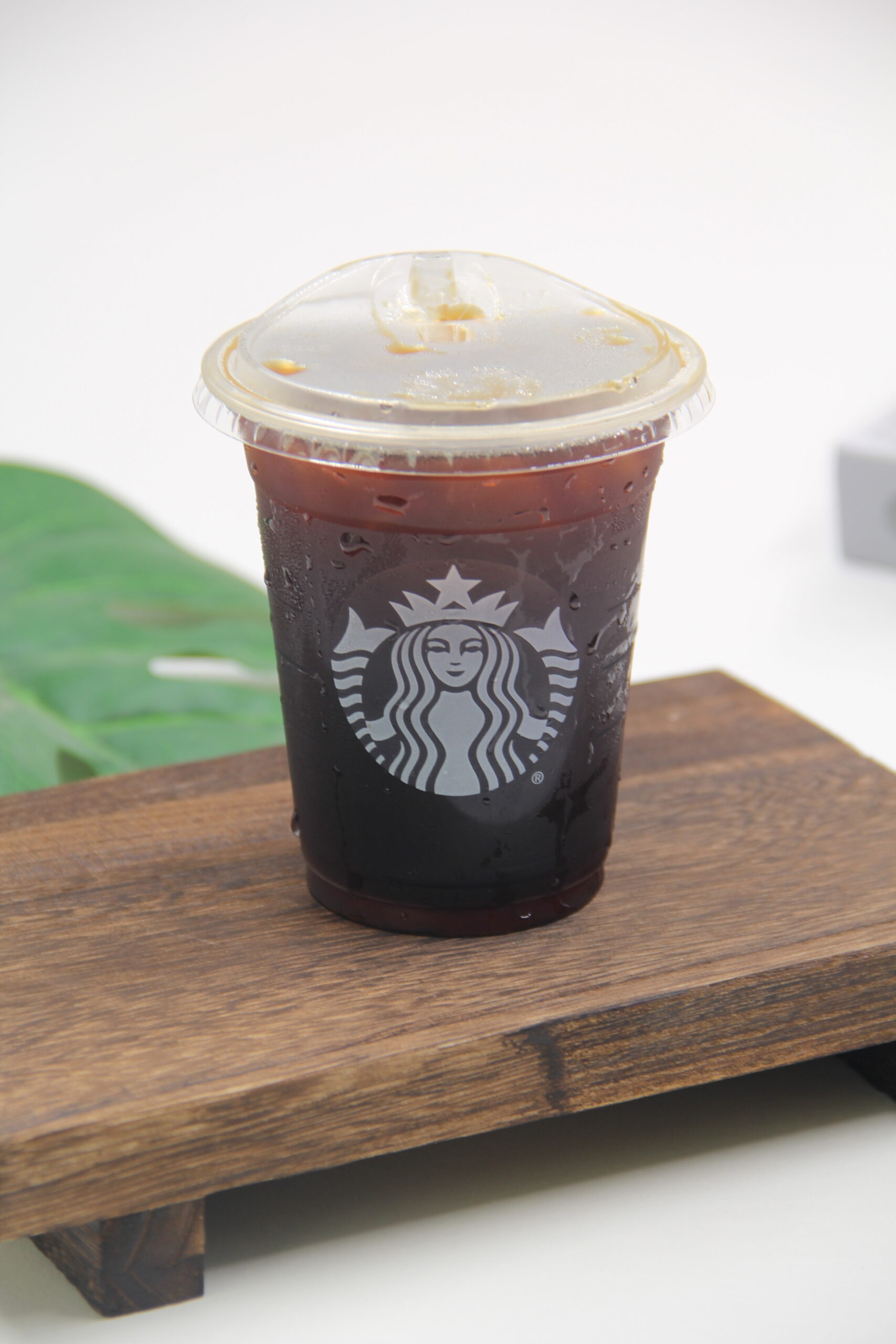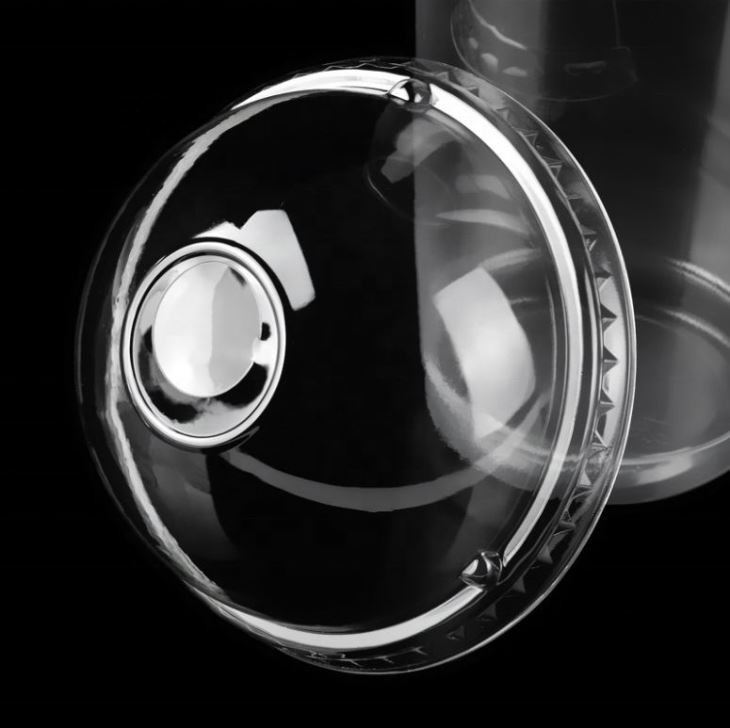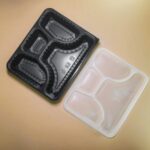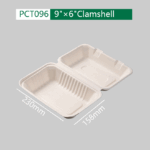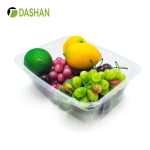Introduction
In today’s global foodservice industry, choosing the right disposable drink cups is no longer just about cost. Customers demand more—clear presentation, safety, durability, and a reduced environmental footprint. Businesses, on the other hand, must balance performance, compliance with international standards, and operational efficiency.
Polyethylene Terephthalate (PET) has become one of the most trusted solutions for disposable drink cups worldwide. PET combines strength, clarity, recyclability, and safety in a way that few other materials can match. From cafés in Europe to juice chains in North America and catering events in Asia, PET is shaping the way beverages are served, delivered, and experienced.
In this article, we will explore why your next batch of drink cups should be made of PET, drawing from industry research, expert commentary, real business cases, and scientific data.
Section 1: Understanding PET – The Material Behind the Cup
PET, or Polyethylene Terephthalate, is a thermoplastic polymer widely used in beverage packaging. Unlike single-use plastics that cannot be recycled efficiently, PET has one of the highest recycling rates globally, making it both a practical and sustainable choice.
Key Properties of PET:
-
Transparency: PET cups offer a glass-like appearance, making drinks look vibrant and attractive.
-
Durability: They resist cracking, shattering, or leaking, even under stress.
-
Lightweight: PET reduces transportation costs, crucial for importers and wholesalers.
-
Safety: FDA and EFSA approve PET for direct food and beverage contact.
-
Recyclability: PET can be recycled up to 7 times without losing quality.
Authority Quote:
According to the Plastics Industry Association (2024), PET is the world’s most collected and recycled plastic, with over 58% of PET bottles recycled in Europe and rising rates in Asia and North America.
Section 2: Experience – How PET Enhances Customer Satisfaction
Your packaging directly influences the way customers perceive your brand. PET cups create a premium drinking experience:
-
Crystal-clear look: Drinks appear more appealing, boosting impulse purchases.
-
Comfort in use: Smooth edges and sturdy walls improve handling.
-
No spills: Secure fit with PET dome and flat lids makes them ideal for takeout and delivery.
-
Preservation of freshness: PET resists absorbing odors or flavors, keeping beverages fresh longer.
Case Example:
A café franchise in Germany switched from PP (Polypropylene) to PET cups and reported a 15% rise in customer satisfaction ratings in six months. Customers cited better presentation and fewer lid issues as key reasons.
Section 3: Professional Applications Across the Foodservice Industry
PET cups are not limited to cold beverages; their versatility makes them a staple across industries.
-
Cafés and Coffee Shops: PET cups are perfect for iced lattes, frappés, and cold brew coffees.
-
Juice & Smoothie Bars: The clarity of PET highlights natural fruit colors, enhancing product appeal.
-
Bubble Tea Stores: Strong enough to withstand sealing machines and vigorous shaking.
-
Catering & Events: Lightweight yet professional appearance for large-scale events.
-
Supermarkets & Retail: Widely used for ready-to-drink beverages and pre-packed cold brew.
Professional Insight:
“PET cups offer unmatched versatility across foodservice channels, making them the most scalable and globally recognized solution,” says Dr. Emily Watson, Packaging Technology Specialist, University of Leeds.
Section 4: Authority – Safety and Compliance
Food safety is paramount in international trade. PET’s widespread approval makes it a reliable choice:
-
FDA (U.S.): PET is cleared for all food and beverage contact.
-
EFSA (European Union): Approved for safe, long-term use in packaging.
-
ISO Standards: PET cups often comply with ISO 22000 food safety management systems.
Fact Check:
A 2023 report by the International Life Sciences Institute (ILSI) confirmed that PET does not leach harmful chemicals under normal use, unlike some alternative plastics.
This authority-backed assurance allows importers, distributors, and foodservice providers to confidently use PET in diverse global markets.
Section 5: Trustworthiness – Proven by Global Recycling Systems
One of PET’s strongest selling points is its integration into existing recycling infrastructures.
-
Recycling Infrastructure: PET has an established collection and recycling system in most developed markets.
-
rPET (Recycled PET): PET cups can be turned into rPET, supporting circular economy practices.
-
Corporate Adoption: Global beverage brands like Coca-Cola and PepsiCo commit to increasing rPET content in their packaging by 2030.
Authority Quote:
The Ellen MacArthur F
oundation identifies PET as a key player in creating a circular plastics economy because of its high recyclability and economic value in recycling markets.
Section 6: Business Case – PET as a Cost-Effective Solution
For importers, wholesalers, and café owners, PET isn’t just about sustainability; it’s about smart economics.
-
Bulk Efficiency: PET cups are easy to manufacture in large volumes.
-
Shipping Advantage: Lightweight design cuts freight costs.
-
Reduced Waste: Stronger cups mean fewer product returns from leaks or cracks.
Case Study:
A smoothie chain in the U.S. reported saving 12% in annual operational costs by switching to PET cups. Lower breakage rates during shipping and fewer customer complaints drove down replacement costs.
Section 7: Expert Recommendations for Buyers
When selecting PET cups, industry experts recommend:
-
Choose a certified supplier with FDA, EFSA, or ISO certifications.
-
Evaluate wall thickness—thicker PET for milkshakes, standard PET for iced coffees.
-
Check lid compatibility to avoid spillage in takeout services.
-
Plan eco-strategies by incorporating recycling or rPET initiatives into your business model.
Expert Quote:
“PET packaging is not just a purchase—it’s a branding tool that signals safety, professionalism, and environmental awareness,” says John Martinez, Senior Consultant at Global Packaging Insights.
Section 8: Future Outlook – PET and Beyond
The packaging industry continues to evolve, and while PET remains dominant, new materials are emerging:
-
rPET: Increasing use of recycled PET will help brands lower their carbon footprint.
-
PLA (Polylactic Acid): A plant-based compostable alternative, suitable for markets with composting facilities.
-
Hybrid Solutions: Combining PET with bio-based polymers for improved sustainability.
Still, PET’s scalability, recyclability, and global acceptance make it the most practical and reliable choice for now and the future.
Conclusion
So, why should your next batch of drink cups be made of PET?
Because PET embodies the four principles businesses and consumers demand today:
-
Experience: A premium look and feel that elevates the customer’s enjoyment.
-
Professionalism: Widely trusted across cafés, restaurants, supermarkets, and catering services.
-
Authority: Certified by FDA, EFSA, and global safety agencies.
-
Trustworthiness: Supported by real-world recycling systems and corporate sustainability commitments.
Switching to PET drink cups is not just a packaging choice—it’s a strategic move that enhances brand value, customer trust, and long-term sustainability.
So Why Choose DASHAN PET Cups for Your Next Batch of Drinks?
In beverage service, quality, durability, and visual appeal are all essential. DASHAN PET cups perfectly combine these three. Made from high-quality, food-grade PET material, they offer crystal-clear transparency to showcase the vibrant colors of your drinks, while being lightweight yet sturdy and crack-resistant, ensuring a premium experience for both serving and transport.
Beyond beauty and durability, DASHAN PET cups focus on sustainability and eco-friendliness. PET is widely recyclable, and our products meet international food safety standards, giving you peace of mind while supporting the environment.
Whether for iced coffee, smoothies, milk tea, or juices, DASHAN PET cups are ideal for restaurants, cafes, takeout services, and events. High transparency, high durability, high safety, and high eco-friendliness—choosing DASHAN means choosing a reliable, safe, and environmentally responsible partner committed to providing premium drinkware for your business.
FAQ:
1. What is a PET cup, and why choose it?
A PET (Polyethylene Terephthalate) cup is a high-transparent, durable, and lightweight plastic cup. It is resistant to cold and heat, crack-proof, and suitable for a wide range of beverages, from iced drinks to smoothies.
2. How does a PET cup compare to other plastic cups like PP or PLA?
PET cups offer superior clarity, making drinks look more appealing. They are highly impact-resistant and less likely to crack. Additionally, PET is easier to recycle, making it a more sustainable choice.
3. Is a PET cup safe for food and beverages?
Yes. High-quality PET cups meet food contact safety standards, are free from harmful chemicals, and are safe for direct use with beverages.
4. Are PET cups environmentally friendly and recyclable?
Yes. PET is widely recyclable and has a higher recycling rate compared to many other plastics. Using PET cups can reduce the environmental impact of disposable cups and promote sustainable reuse.
5. What are the common use cases for PET cups?
PET cups are ideal for cold drinks, juices, milk tea, smoothies, party beverages, and takeout drinks. They are transparent, durable, and easy to transport, making them perfect for the beverage and foodservice industries.
The following are the references for this article
1. PET’s Recycling Rate in Europe
According to the Plastics Europe report, the sorted recycling rate for PET in Europe was 54% in 2022, with beverage bottles achieving a higher rate of 75%. Plastics Recyclers Europe
2. FDA and EFSA Approval for PET
The U.S. Food and Drug Administration (FDA) regulates food contact substances, including PET, to ensure they are safe for consumption. U.S. Food and Drug Administration
The European Food Safety Authority (EFSA) assesses food contact materials, including PET, to ensure they are safe for use in food packaging. European Food Safety Authority
3. Safety of PET in Food Contact
A study published in ScienceDirect indicates that PET is inert and free from plasticizers, eliminating concerns about harmful chemical leaching. 科学网
4. Ellen MacArthur Foundation on Circular Economy
The Ellen MacArthur Foundation emphasizes the importance of a circular economy for plastics, aiming to eliminate waste, reduce pollution, and drive innovation in materials and packaging. ellenmacarthurfoundation.org
5. Recycling Rate of Plastics in the EU
Eurostat reports that the recycling rate of plastic packaging waste in the EU was 40.7% in 2022, up from 25.2% in 2005. 欧洲议会


